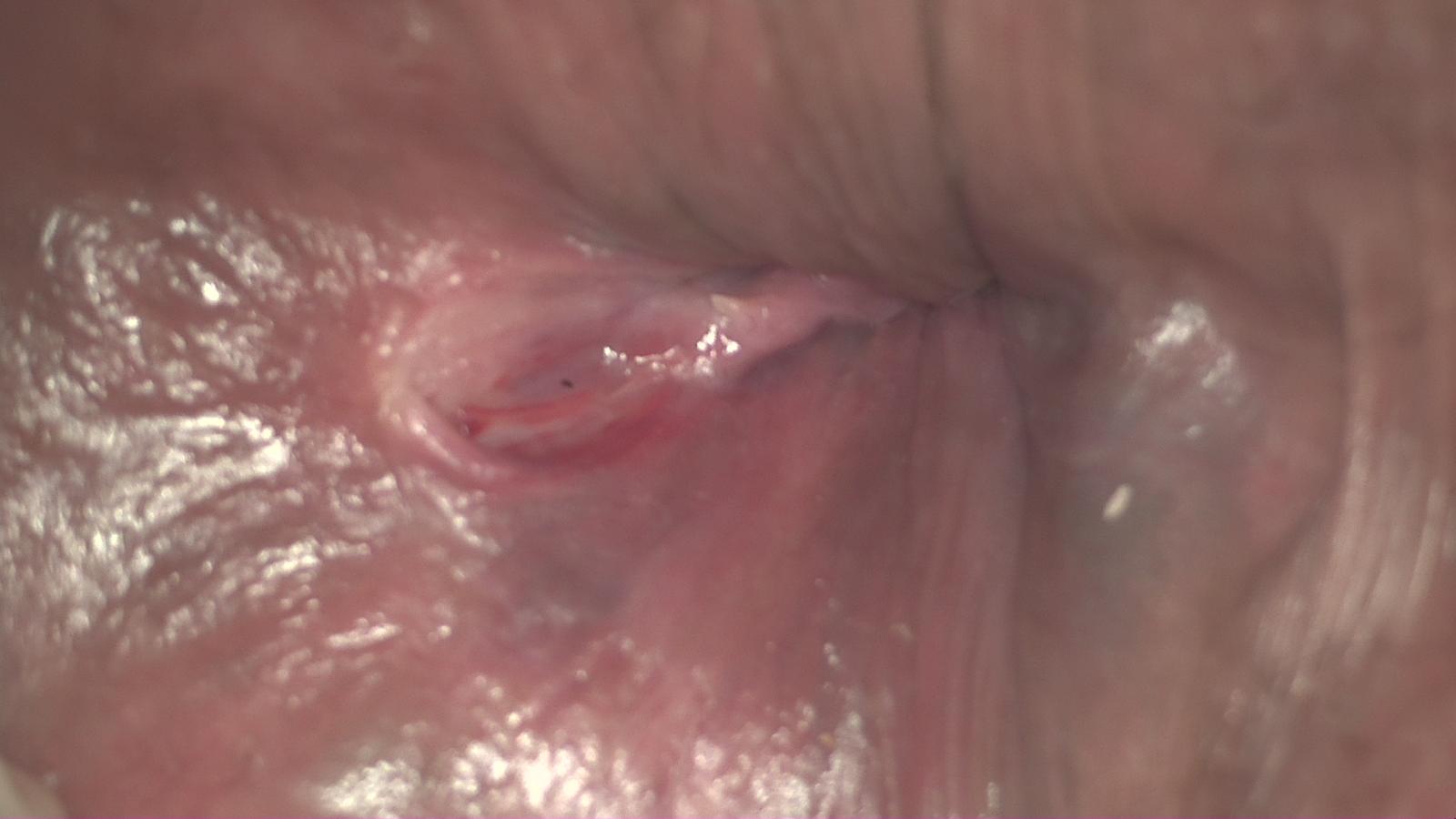Treatment of anal fissure
This is a very painful condition. Anyone from infancy to adulthood can suffer from anal fissure. Although an anal fissure is usually harmless and treatable, it can also be a sign of other health problems. If you have - or think you have - an anal fissure, you should understand the symptoms and causes and talk to our practice about your concerns.
An anal fissure is a defect, a bleeding wound of the mucous membrane and skin of the end of the anus, which is significantly painful, especially during defecation and in the period after defecation. Significant soreness is caused by exposed nerve endings located in the rectum.
Common symptoms include a slight tinge of blood in the stool, a razor-sharp pain when trying to move the bowel - defecation. Often a mild to intense itching may be present, which can be quite irritating.
If you think you have hemorrhoids, but at the same time you feel pain, it is possible that you also have a fissure. If you have noticed long-lasting symptoms like these, a real proctologist should be contacted to determine the best course of treatment.
According to the duration and the nature of the tissue on examination, we distinguish between acute and chronic rupture.
The rupture causes spasm of the internal sphincter, resulting in a decrease in blood supply to the tissue, a reduced tendency to healing and to transition to the chronic stage.
The exact aetiology is unknown, but it is thought that hard stools or repeated thin stools (diarrhoea) play a role.
Treatment of anal fissure - fissure
It is very important not to neglect the first signs of the disease and treat the fissure already in the beginningto prevent the transition to the chronic stage. Unfortunately, conservative treatment often no longer works. Non-surgical treatment of anal fissure consists in relaxing the sphincter spasm, which leads to the start of tissue healing.
For anal fissure, we rely on a proven and proven method of treatment.
Treatment - Botulinum toxin
As one of the few workplaces in Slovakia, we provide treatment of anal fissure with botulinum toxin in our outpatient clinic. Botulinum toxin, like topical treatment, causes the sphincter to relax, leading to pain relief and jump-starting the healing of the tear. Very low doses of botulinum toxin are used, so the patient is not at risk of danger or complications. It is a one-time procedure with the application of botulinum toxin to the area of the tear. Although the botulinum toxin is only temporary (several months), the tear usually heals within that time. The success rate of healing is higher than that of topical treatment, and with repeated application, the healing rate is close to 90 %.
Treatment - Radiofrequency
In addition to the above mentioned procedures, we also provide treatment of chronic fissure in our outpatient clinic using radiofrequency. Thanks to this method, the chronic tissues around the fissure that are preventing its healing are removed. It is used in combination with local treatment or botulinum toxin application. It also removes chronic tissues accumulated by the long-lasting course of the disease. Radiofrequency is significantly gentle to tissues and does not destruct the surrounding healthy tissues. This method is very precise and thus the healing is shorter and less painful. The procedure can be performed on an outpatient basis, without the need for general anaesthesia. It takes an average of 20 minutes and after the procedure, the patient can go home by car without any restrictions and return to normal life immediately. The method is safe and the risks are minimal.
Choosing a suitable proctologist who is experienced in this delicate and intimate procedure and who, in the best case scenario, has a routine surgical practice in this area in addition to proctology, is also very important.
Surgical treatment (myotomy)
For fissures that do not respond to the above treatment or for recurrence of this type of disease, surgical treatment should also be considered.
At our outpatient clinic, we offer this procedure as part of outpatient care. This means that you do not need pre-operative preparation and go home after the procedure.
In our proctology centre we have many years of experience with all of these procedures. Based on the examination and the specific findings, we will always individually propose a treatment that will lead to a discreet and as successful as possible solution of your problem.
It is important not to hesitate to consult a proctologist immediately at the first symptoms, discomfort, pain when defecating or bleeding. If the fissure becomes chronic, the subsequent treatment is more complicated, more painful and ultimately more time-consuming and expensive for the patient.
Prevention - what to do to prevent a crack from forming or returning?
If you have already had an anal fissure in the past and it has healed, there is only about a 30% chance that it will form again in the future. You can prevent the formation of cracks, in particular, by adjusting your diet. It is important to keep the stool soft. Our expert therefore advises to prefer a diet rich in fibre and to ensure your body receives enough fluids.
- sufficient fibre intake from the diet by modifying it
- Prioritise fruit, vegetables, wholemeal bread, oatmeal, bran
- in the case of insufficient dietary fibre intake, the deficiency can be partially compensated by commercially available fibre
- sufficient daily fluid intake, aim for a minimum of two litres of fluids
- avoid alcoholic beverageswhich rather dehydrate
- avoid codeine-containing painkillerswhich commonly causes constipation, give preference in pain to paracetamol, diclofenac, ibuprofen.
sensitive content
This content shows explicit images
intimate parts of the body.
